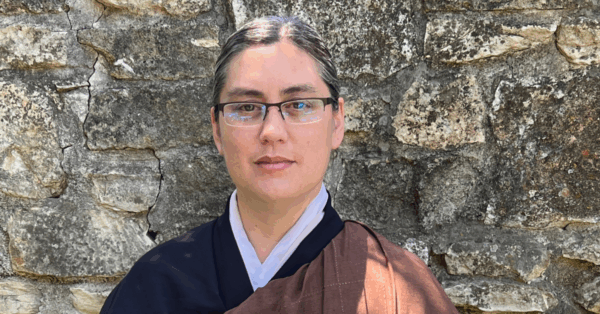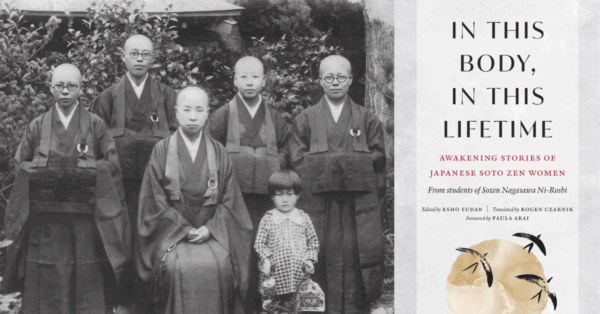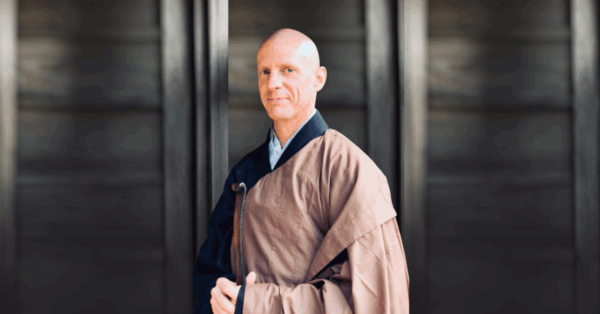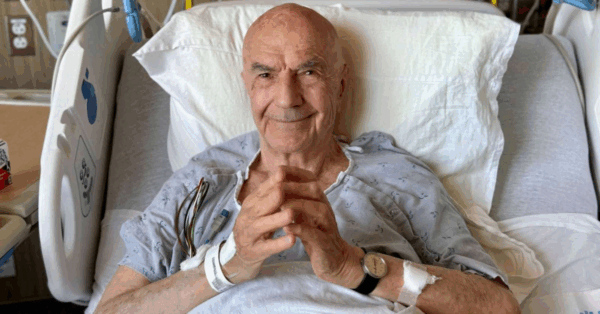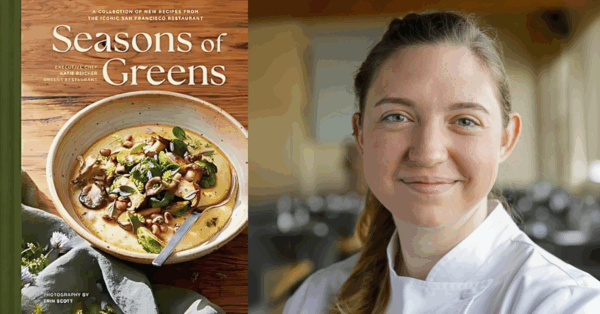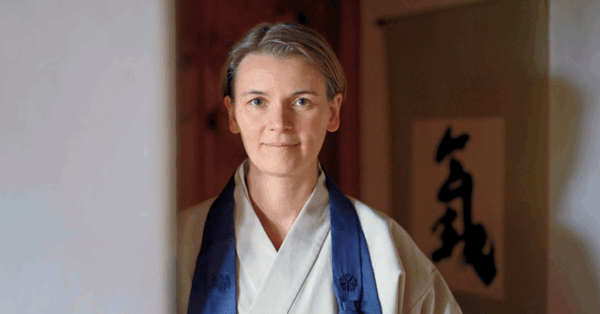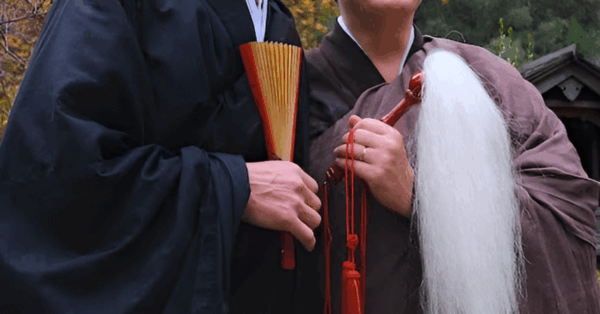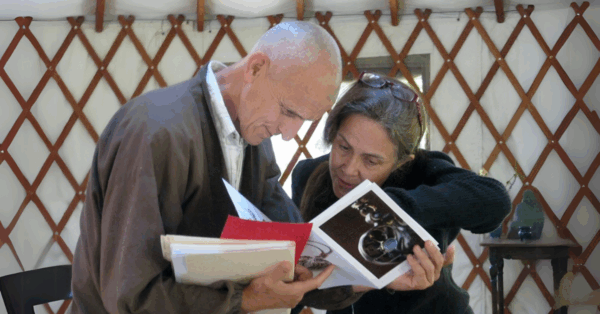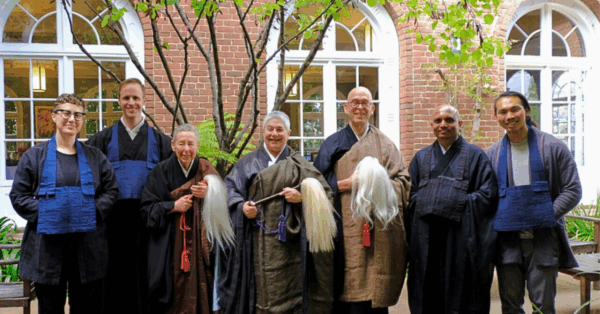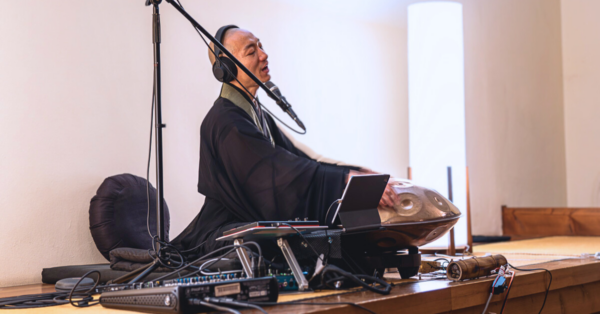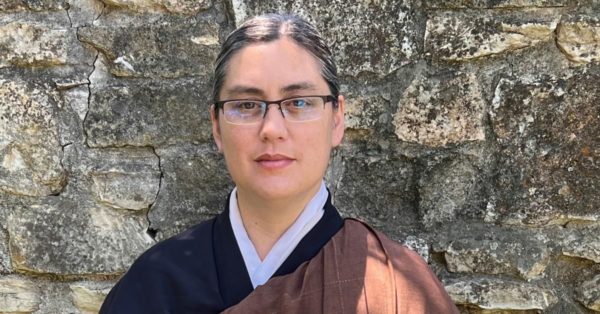
By Tova Green
Mako Voelkel, whose dharma name is Unzan Dōshin / Cloud Mountain, Path of Heart, will assume the role of City Center Abiding Abbot on March 11. She was priest-ordained by Ryushin Paul Haller in 2004, was Shuso (head student) at Tassajara in a practice period led by Paul in 2009, and received dharma transmission from him in 2019.
Mako first learned to meditate at the age of fifteen, when she and her mother viewed a 30-minute informational short on the benefits of meditation. They followed up by going to a class in Transcendental Meditation, learning to meditate with a mantra. Mako soon began meditating while riding the bus to school and continued into her college years, sometimes teaching friends how to meditate.
While at college at the University of Maryland, Mako majored in Philosophy, with minors in Women’s Studies and African American studies. She attended graduate school at the University of Houston, where she received her MA in Philosophy of Mind, and went on to a PhD program in Brain and Cognitive Sciences at the University of Rochester to study neurological mechanisms of sexual differentiation in avian song-learning. In her attempt to connect philosophy, biology, and sexual differentiation, Mako felt she had lost “the big picture,” and dropped out of graduate school to move to San Francisco with her then partner.
They decided to do a survey tour of meditation centers in the Bay Area. One Saturday they came for the morning program at City Center. Ryushin Paul Haller was giving the Dharma talk. Mako felt that he was speaking directly to her. There were some cultural aspects of City Center that were familiar to her, such as the tatami mats in the Buddha Hall and the practice of bowing. She had practiced Aikido, which uses many similar forms, in college and graduate school and felt comfortable with the forms at SFZC.
Mako’s mother was Japanese, and had met Mako’s father, an American who was working in Japan as an engineer. They married in Japan and eventually went on to live in Australia and Iran before moving to the United States when Mako was six years old. As a child, Mako spent time with her Japanese family: grandparents, aunts, and cousins. Shortly before Mako was ordained as a priest, she returned to Japan with her mother after her grandmother had a heart attack. On that trip they visited their family temple Zuiganji on the outskirts of Tokyo. They arrived to the sound of a mokugyo and monks chanting the Shin Gyo (the Heart Sutra in Japanese). It was on that trip that Mako first realized that her family’s temple was a Soto Zen temple. Mako has returned to Japan several times since and has paid her respects to her grandparents at Zuiganji almost every time.
After Mako’s first visit to San Francisco Zen Center, she began coming every weekend, participating in as many sittings and sesshins as she could. At her first seven-day Rohatsu sesshin she told Ryushin Paul Haller that she felt like “a reincarnation of Dogen” from “an experience of merging in meditation, merging into unity.” Soon she began volunteering in the City Center library, looking for ways to get closer to the community. She wanted to move in but had four cats and a full household. She did move into 300 Page Street in 2001, leaving her cats with her partner. A few months later, when SFZC bought a building on Page Street with three flats for student housing, Mako and her partner both moved there with their cats. Mako had been teaching philosophy part-time at City College but wanted to practice at Tassajara more. She entered the monastery in the fall of 2002.
Mako thinks of her ten years at Tassajara as possibly the happiest time in her life. She appreciated the immersion into a community, the silence, the unspoken intimacy of practicing with others, and living in nature. She loved both the summers and the practice periods. However, near the end of that time, when she was Tassajara’s Director, her body “gave out. I didn’t know how to take care of myself.” Between not getting enough sleep and a labral tear in her hip, she couldn’t heal properly. More than one acupuncturist told her she had no chi. Due to her physical challenges, she decided to leave Tassajara.
After leaving Tassajara, Mako went on a kind of pilgrimage through Asia and Europe for a year during which she deliberately wanted to not know what was next. She didn’t know if she would return to SFZC or not and wanted to remain open to possibilities. During that year Mako received an invitation from the Head Teacher of Austin Zen Center (whom she knew from City Center and Tassajara) to be the Tanto (head of practice) there. Mako accepted his offer and served as Tanto at AZC for several years before eventually being invited to become Head Teacher. She agreed, although she found it challenging, as Austin Zen Center didn’t have the level of community or support that she had been used to at Tassajara.
During the pandemic Mako had become burned out. When she received the invitation to come to San Francisco to be the Abiding Abbot of City Center, she didn’t know if she had it in her, and she wanted to be sure that Austin Zen Center was in a good place. Having Choro Antonaccio (who had moved to Austin from Chapel Hill Zen Center to become AZC’s Tanto) there to hold the continuity of practice helped Mako make the decision to accept the invitation from SFZC and return to San Francisco. In early 2023, she and her husband moved from Austin to San Francisco, where they now reside at the Beginner’s Mind Temple.
Mako is pleased to be at City Center now, and is intrigued to see what SFZC has become. It saddens Mako that SFZC is not as diverse as the city it is part of. The residents of San Francisco are not monocultural; there are many ethnicities. She would like to see a reflection of that diversity at San Francisco Zen Center. As Abbot she hopes to work with the current and future community of practitioners to help reinvigorate urban practice post-pandemic, with respect and kindness towards every person. Entering into this new role at SFZC, Mako feels inspired to encourage community members and residents to be and feel seen, and to know that their efforts are appreciated.


